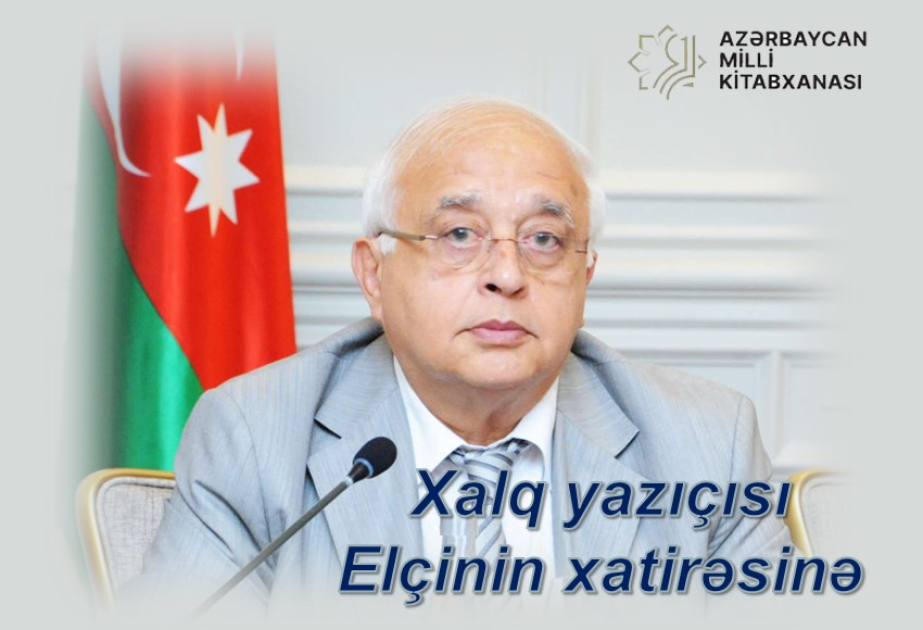A virtual exhibition titled “In Memory of People’s Writer Elchin”, dedicated to the memory of one of the prominent figures of Azerbaijani literature — People's Writer, playwright, prose writer, literary critic, and scholar Elchin Efendiyev — has been launched online at the National Library of Azerbaijan.
According to Tehsil365, the virtual exhibition presents full-text access to the writer’s stories, novellas, novels, selected works written in Azerbaijani and other languages, his literary studies, research on literary criticism, historical and contemporary themes in literature, as well as documents and photographs related to his life and creative work. The exhibition also features reflections and opinions of prominent figures about Elchin.
The virtual exhibition can be accessed via the following link:
👉 https://anl.az/el/vsb/Elchin/index.htm
Elchin Ilyas oglu Efendiyev was born on May 13, 1943, in Baku, into the family of Ilyas Efendiyev — a renowned Azerbaijani People’s Writer. From an early age, he was closely familiar with national literature, folklore, and world classics. His literary career began in the 1960s. His first story, “He Believed”, was published in the newspaper "Azerbaijan Youth" in 1959 when he was only 16. His first story collection, “One of a Thousand Nights”, was published in 1966.
Elchin's rich body of work includes novels, novellas, plays, and scholarly-literary studies. His works such as “Mahmud and Maryam”, “The White Camel”, “The Head”, and “The Flag Bearers” hold a special place in the golden treasury of Azerbaijani literature. He was also actively involved in dramaturgy, with his plays featured in the repertoire of theaters both in Azerbaijan and abroad.
Beyond his literary contributions, Elchin Efendiyev played an important role in the development of Azerbaijani statehood and culture as both a writer and a public-political figure. From 1993 to 2018, he served as Deputy Prime Minister of the Republic of Azerbaijan, contributing significantly to the country’s socio-political and cultural life. In the late 1980s, as chairman of the "Vatan" society, he made invaluable contributions to uniting Azerbaijanis living abroad and strengthening their ties with their historical homeland, playing a key role in the formation of the diaspora movement.

